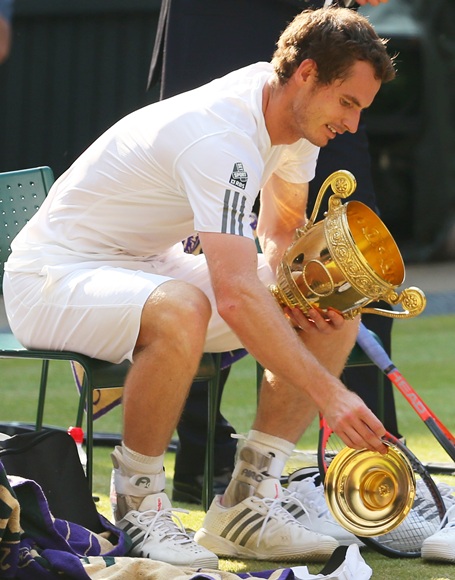
Andy Murray’s triumph at Wimbledon, says Bikash Mohapatra, is an indication that the 26-year-old has got over the mental barrier that haunted him ever since he was anointed the next ‘British’ hope.
The wait is over.
Sunday, the seventh of July, marked the end of 77 years of disappointment of not having a homegrown men’s singles champions at the All England Club.
-British media rejoice in 'History Boy' Murray's triumph
-Point-by-point guide to Murray's decisive game
And it was a Scot who ensured euphoria in the whole of Britain.
Andy Murray’s straight sets win over the 2011 champion and top-ranked Novak Djokovic didn’t just mark the end to a seemingly ‘endless’ drought for the host nation of the most coveted of the four major tournaments.
It also is an indication that the 26-year-old has finally got over the mental barrier that haunted him ever since he was anointed the next ‘British’ hope.
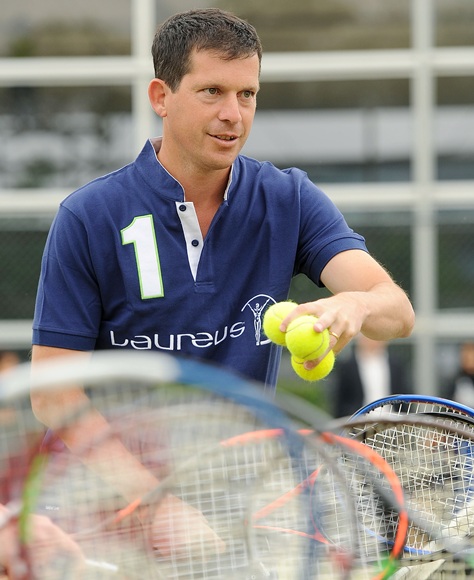
British frustration had increased with every passing year. Understandably so. Any country having to wait this long for a home grown champion is bound to feel the heat.
However, in Britain’s case this frustration had manifested itself to desperation, one that had the pundits and fans anoint even average players as the ‘next best hope’ and ‘possible champion.’
After the last home-based winner in 1936-- when the legendary Fred Perry won his third straight title en route to a Grand Slam -- it was only Bunny Austin (in 1938) who managed to reached the final (till Murray did so last year).
That was followed by years of disappointment till Roger Taylor reached the last four in 1973. However, despite having a glorious chance to win that year -- as 13 of the top 16 players, and 81 players in all, had boycotted the tournament that year because Nikola Pilic had been banned -- Taylor came up short against eventual winner Jan Kodes.
In the subsequent years, players like Jeremy Bates (heard of him?), Tim Henman and Greg Rusedski were burdened with expectations.
In fact, when Rusedski shunned his Canadian passport for British citizenship in the mid-90s, there was euphoria. This was a player who had a monster serve, a good volley and big ground strokes. Enough to raise expectations. That he failed to reach even a final is another story altogether.
Henman, to be fair, always punched above his weight at the All England Club. For someone who won nothing significant -- not a single title on grass as well in a long career -- he ensured the crowd remained hopeful at least till the last four stage; he reached the semi-finals on four occasions before a bigger name exposed his frailties.
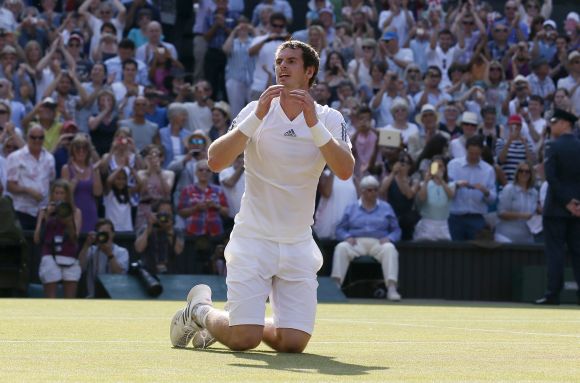
And then came Murray, arguably the best player the island nation has produced since Perry. The Dunblane native’s talent was unquestionable, but there were question marks about his temperament. Add to it the burden of expectations.
Murray, despite starting well on many occasions, succumbed to the pressure more often than not, especially when it came to crunch situations. The fact that he lost first few Grand Slam finals added to the same.
Last year, the Scot became the first British man for 74 years (since Austin) to play in the singles final at the All England Club.
It was an achievement no doubt. However, it also increased the pressure on the player. And Murray succumbed, yet again, allowing Roger Federer to win a record-equalling seventh title.
To his credit, Murray recovered from that disappointment, and a month later beat both Novak Djokovic and the Swiss star to win the Olympic gold medal at the same venue. In a few weeks time, his triumph at the US Open -- beating Djokovic in a five-set affair -- made him the first British man to win a major title since Perry – also at the US Open -- in 1936.
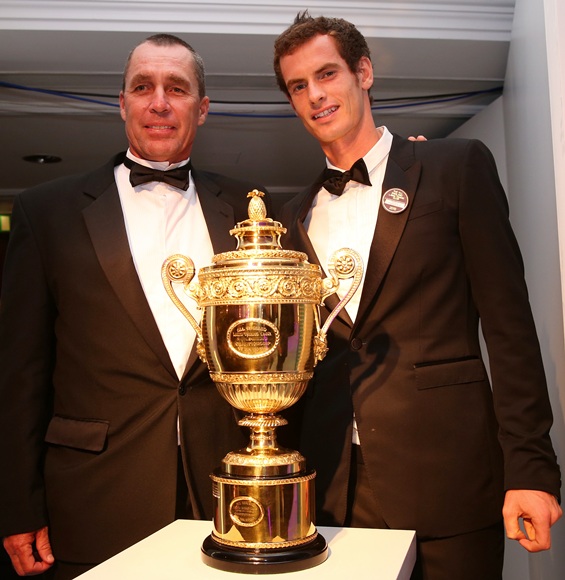
Murray had won two big titles in quick succession and experts, while acknowledging his new-found mental strength also credited coach Ivan Lendl (an eight-time major champion) -- the two joined forces at the start of 2012 -- for the same.
Whatever be the reason, Murray was now a major champion and coming into this edition, the expectations expectedly showed an upward trend. The fact that former champions Federer and Rafael Nadal – both scheduled to meet the Scot later -- suffered shocking defeats inside the first three days added to the pressure.
The bottom half of the draw had opened up and Murray’s passage to the final was eased. The Scot did reach the decider, albeit after a wobble. While he needed all his mental fortitude to recover from a two-set deficit in the quarter-final against Spaniard Fernando Verdasco, the semi-final against Pole Jerzy Janowicz was tougher than expected.
Murray survived both, becoming only the third British man – after Perry and Austin – to reach more than one singles final since the Challenge Round (where the holder had to play only one match) was abolished in 1922.
The player, seeded two, stood on the brink of history yet again.
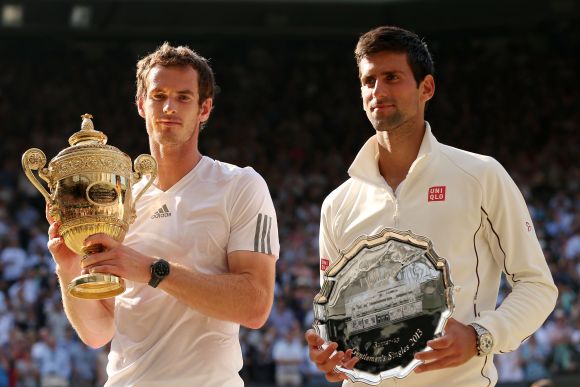
The foe in the final (Djokovic) happened to be his friend – the two were born within a week of each other. The Serb had a better head-to-head record (11-7), having beaten the Scot the last three times they met. Besides, Djokovic’s record in major finals (six won out of 10) was way better than Murray’s (one out of six).
However, there was one thing going in Murray’s favour. The Scot was on a 17-match winning streak on grass. In fact, his only defeat in his last 24 matches on the surface had been against Federer in last year’s final.
Murray wore that like an armour and never really let Djokovic dominate, emerging victorious in the three hour, nine minute contest.
The final score line -- 6-4, 7-5, 6-4 -- may not be an apt indication of the slugfest the match happened to be. It nonetheless indicated the winner.
For once, Murray didn’t let the occasion get to him.
In his eighth attempt Murray had not only ensured himself a maiden Wimbledon title but also marked the end to a seemingly endless wait for Britain.